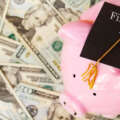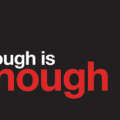
This morning I was listening to the radio and heard a segment about a new museum that just opened in Sweden. The Museum of Failure. Brilliant! There are all kinds of cool failed ideas like Google Glass and the Apple (fig) Newton. I could add a few others…olestra (that oil alternative that has the unpleasant side effect of violent diarrhea) or maybe these hoverboards that explode into flames (I have two in my garage). The point is, in order to succeed one has to fail first. The problem is, everyone likes to say that, but find me the parent who is happy to have their child get an F in Algebra. Not happening.
So how can we allow our kids to fail (and learn) without screwing up their chances for college admission? You don’t want to fail an AP class, or any class for that matter; yet, there are plenty of other opportunities for failure, and you should make them available to your kids ASAP. Here’s how.
1. Start early. Let your child NOT make the team. Let them lose the race, the game, the contest. Let them flub up the recital (especially if they didn’t practice). Give them lots and lots of opportunities to try, fail, and then try again. Penelope Trunk writes about the importance of practice in an article in Business Insider, and we all know that “practice makes perfect,” but how many of us really force that issue?
2. In school, encourage plenty of “low stakes testing.” These aren’t those God awful state assessments. Low stakes testing (the best way to prepare for the SAT by the way) consists of frequent, short, low stress quizzes that help to decrease test anxiety due to their frequency and the fact that they DO NOT COUNT for much. They are LOW STAKES. Sure, your kids may fail a bunch of them, and then they start to figure out that the world isn’t ending, and they figure out how to best learn the material (not by cramming the night before) and after a bunch of failures they start to PASS the tests. Imagine that.
3. As a child gets older, he or she is willing to take intellectual risks because he or she knows that A) the world won’t end with failure and B) that failure leads to new ideas and eventual success. Once a young adult, he or she will learn to collaborate and look at – and deal with – problems in different ways.
I could go on and on, but you get the idea. Failure is good. Just ask Thomas Edison, or just about any theoretical physicist, or any of those folk who discovered a cure for one disease because the one they were working on didn’t cure the original disease.
And read one of Wendy Mogel’s books. Start with The Blessing of the Skinned Knee. It will go over great at cocktail parties when you are trying to explain to people why it is okay that your little Charlie was just cut from the travel soccer team (that’s fine, soccer is overrated).



